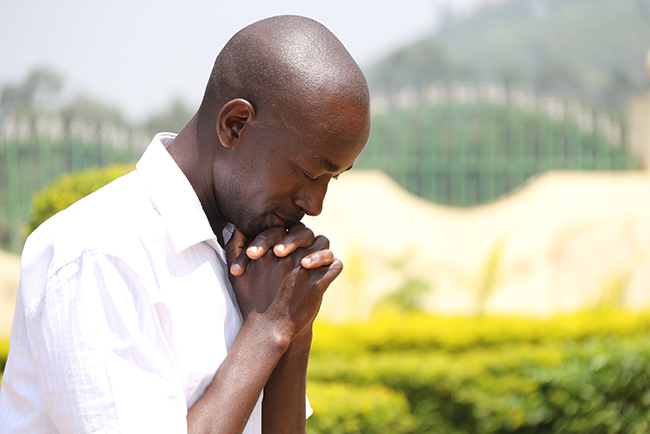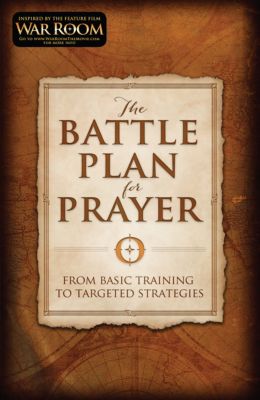
If praying is supposed to be one of the identifying marks of the faithful pastor, why does it feel like such a slog at times?
By Ronnie Martin
“Pastors are paid to pray.”
If that sounds like a crass statement, it might be, if a pastor feels a vocational, obligatory impulse to do the one thing Paul instructed the Thessalonians to do without ceasing. I made the above statement years ago in a room full of ministers to point out that praying is supposed to characterize the life of a pastor as much as all the other things they’re paid to do, even though it’s likely absent from their formal job description.
If praying is supposed to be one of the identifying marks of the faithful pastor, why does it feel like such a slog at times? What are some things that hinder pastors from doing the one thing they’re supposed to be doing before, during, and after all the other things they’re called to do? Here are two big hindrances to pastoral prayer:
1. Busyness
Eugene Peterson famously said, “The busy pastor is a lazy pastor.” Now, before you think this statement officially nominates you as the laziest person in the world, let’s unpack what he means. Peterson is simply stating that when running the church becomes the pastor’s call over prayer, preaching, and people, they’re being lazy by not designing a schedule that allows them to focus on these primary tasks. Peterson was convinced a pastor’s most important “job” is to commune with Jesus through prayer and the Word so people can be ministered to by a pastor whose life is being formed by Jesus.
Busyness makes us feel needed, important, vital, and self-sufficient. Prayer, on the other hand, draws from the well of our deep neediness before God that we try to avoid and suppress with busyness. Prayer re-grounds us in God. It puts God in His rightful place as Lord over our lives.
Busyness makes us feel needed, important, vital, and self-sufficient. Prayer, on the other hand, draws from the well of our deep neediness before God that we try to avoid and suppress with busyness. — @ronniejmartin Click To Tweet“When I became embittered and my innermost being was wounded, I was stupid and didn’t understand; I was an unthinking animal toward you. Yet I am always with you; you hold my right hand. You guide me with your counsel, and afterward you will take me up in glory. Who do I have in heaven but you? And I desire nothing on earth but you. My flesh and my heart may fail, but God is the strength of my heart, my portion forever” (Psalm 73:21-26, CSB).
Busyness can lead to bitter souls and brutish hearts, but presence with God reorders the desires of our hearts.
2. Unbelief
This one really cuts to the heart, doesn’t it? The bottom line is if we believe prayer is as effective as Scripture says it is, our prayer lives will resemble Niagara Falls: ever-flowing and flowing over everything it meets. But the truth is we have a hard time believing that what we can’t see doesn’t make God any less effective or any less involved in the intricate details of our lives. We have a hard time trusting God is doing something good through our prayers, especially when it’s not the good thing we may be asking for.
A fictional C.S. Lewis quote from the movie Shadowlands says, “I pray because I can’t help myself. I pray because I’m helpless. I pray because the need flows out of me all the time—waking and sleeping. It doesn’t change God, it changes me.”
Fictional or not, this quote aptly describes the most important thing that happens to pastors who pray with consistency and urgency: they are changed. And yet, if we’re being honest, most of the time what we really desire when we pray is for everything but us to be changed. This comes down to a fundamental disbelief in the goodness of God—a Father whose divine Fatherliness means whatever He’s decided is best for us, is actually best for us.
The bottom line is if we believe prayer is as effective as Scripture says it is, our prayer lives will resemble Niagara Falls: ever-flowing and flowing over everything it meets. — @ronniejmartin Click To Tweet“If you then, who are evil, know how to give good gifts to your children, how much more will your Father in heaven give good things to those who ask him” (Matthew 7:11, CSB).
The problem, of course, is when God’s good things are not aligned with our good things (which, by the way, doesn’t necessarily mean our good things are bad things). God may decide to add, subtract, or withhold something in our lives that’s more ultimate than the fulfillment of that particular request. Tim Keller famously said, “God will either give us what we ask for in prayer or give us what we would have asked for if we knew everything He knows.”
Even as we struggle with doubt and unbelief, God is always answering our prayers. “No,” “yes,” and “wait” are all answers. The question is, will we trust the answer we receive is what God has best willed for us from His compassionate heart? When we begin to believe this, our prayers flow from an expectant and grateful heart, which is the kind of heart God wills for us, since it best resembles the heart of His Son.
“For the Lord God is a sun and shield. The LORD grants favor and honor; He does not withhold the good from those who live with integrity” (Psalm 84:11, CSB).

Ronnie Martin
Ronnie is the planter and founding pastor of Substance Church in Ashland, Ohio.










